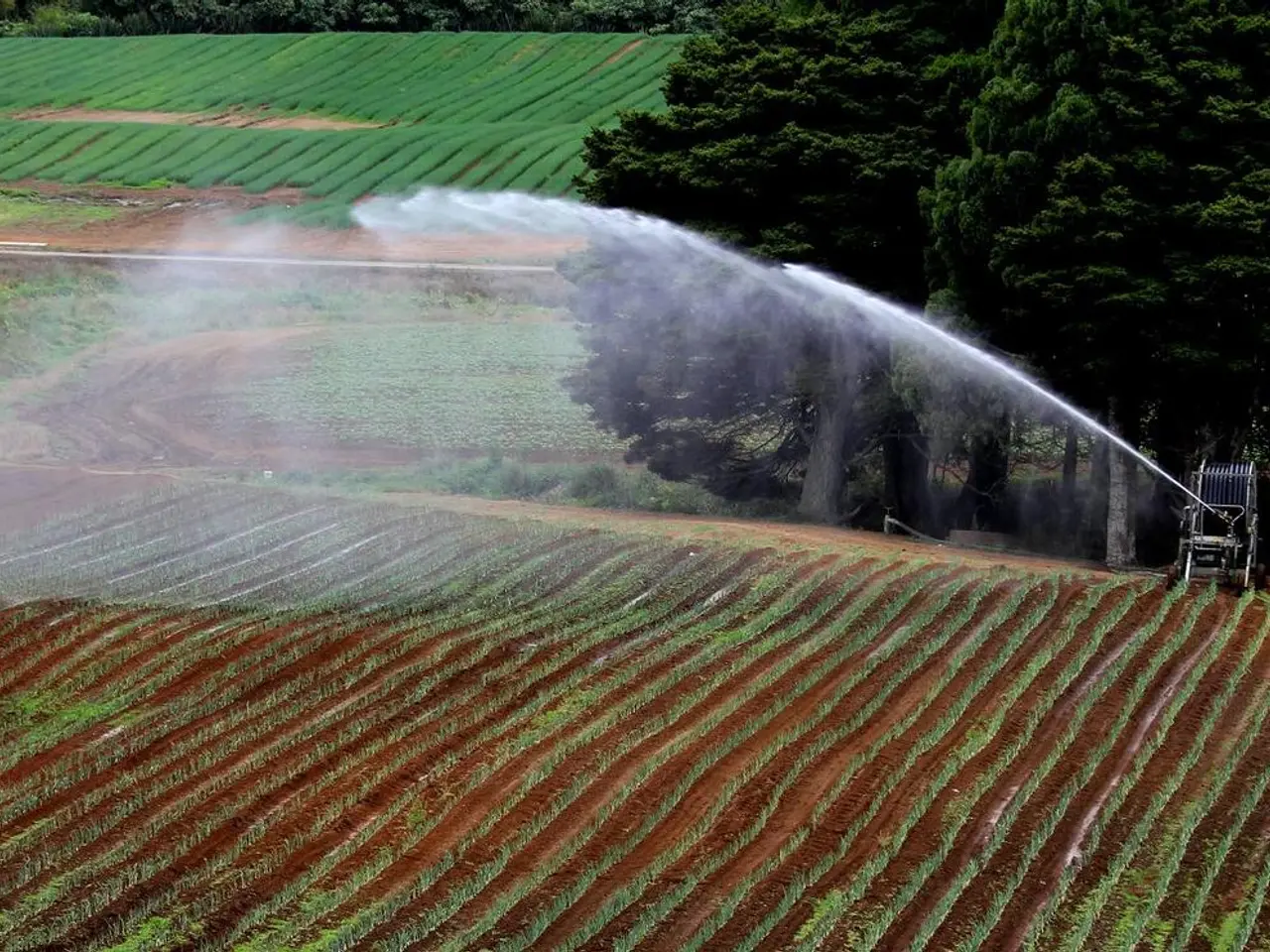Foreign investment in Belarus' economy for the year 2025 disclosed
In the first half of 2025, Belarus witnessed a significant surge in foreign investments, with direct investments accounting for 75.3% of the total, amounting to $3.2 billion. One of the key contributors to this influx is China, with Chinese businessmen expressing interest in purchasing land for farming purposes in the Mogilev region.
The Mogilev region, situated in the heart of Belarus, offers a strategic location for agricultural exports to Eurasian markets, and boasts large tracts of arable land available at relatively low cost. This has caught the attention of Chinese investors, who are attracted by the opportunities for agricultural modernization and joint ventures supported by government cooperation frameworks, including those aligned with Chinese-led organizations like the Shanghai Cooperation Organization (SCO).
The Chinese delegation, during a recent visit to the Mogilev region, showed particular interest in growing wheat, corn, rapeseed, and soybeans. A representative from the Chinese delegation highlighted the constant demand for food products worldwide as the main reason for this investment, underscoring the promising and important nature of this goal.
Liliya Gulinskaya, a representative of the Mogilev Regional Executive Committee, confirmed that Belarus has seeds and plant protection means available for the Chinese farmers. However, specific details such as the number of Chinese businessmen, the exact amount they are willing to pay for the Belarusian land, and the impact of these investments on the Belarusian economy remain undisclosed.
Authorities in Belarus hope that these investments will lead to the purchase of seeds and mineral fertilizers from Belarusian sources, potentially boosting the local economy. It's worth noting that Belarusian companies made foreign investments worth $2.5 billion in the first half of 2025, with 74.9% being direct investments. However, details about these investments are not available.
Belarus's agricultural sector is a priority for modernization and partnerships, as the country actively seeks investment and technological cooperation to boost crop production and agro-industrial processing. This alignment of interests and investment opportunities for Chinese firms was evident at the SCO agriculture ministers' meeting in Kunming, where Belarus emphasized expanding trade, joint ventures, and technology transfer in agriculture.
In contrast to countries like the US where there are increasing restrictions and security concerns around Chinese acquisition of agricultural land, Belarus presents a more open environment for Chinese investment in farmland without the same level of regulatory constraints. This, coupled with Belarus's economic challenges and need for foreign investment in agriculture, makes Chinese capital and know-how attractive for revitalizing and expanding crop production in Belarus.
While the exact extent of Chinese land purchases in Belarus remains limited, the strategic vision for modernizing Belarus’s agro-industrial sector and the opportunities it presents for Chinese investors in farming are clear. As these investments continue to unfold, it will be interesting to see how they shape the agricultural landscape of Belarus and contribute to its economic growth.
[1] Source: SCO agriculture ministers' meeting in Kunming [2] Source: Restrictions on Chinese agricultural land purchases in the US [3] Source: Security concerns around Chinese agricultural land acquisitions [4] Source: Belarus's potato crisis revealing state management issues [5] Source: Regulatory constraints on Chinese agricultural land acquisitions in the US
Chinese investors, drawn by the opportunities for agricultural modernization and the strategic location of the Mogilev region in Belarus, are planning to purchase land for farming purposes, particularly focusing on growing wheat, corn, rapeseed, and soybeans. The influx of Chinese capital and know-how is expected to revitalize and expand crop production in Belarus, potentially boosting the local economy and contributing to its economic growth.
Given the high demand for food products worldwide and the support of government cooperation frameworks like the Shanghai Cooperation Organization (SCO), finance and investing in the Belarusian real-estate sector, specifically in agriculture, presents attractive opportunities for both parties.





